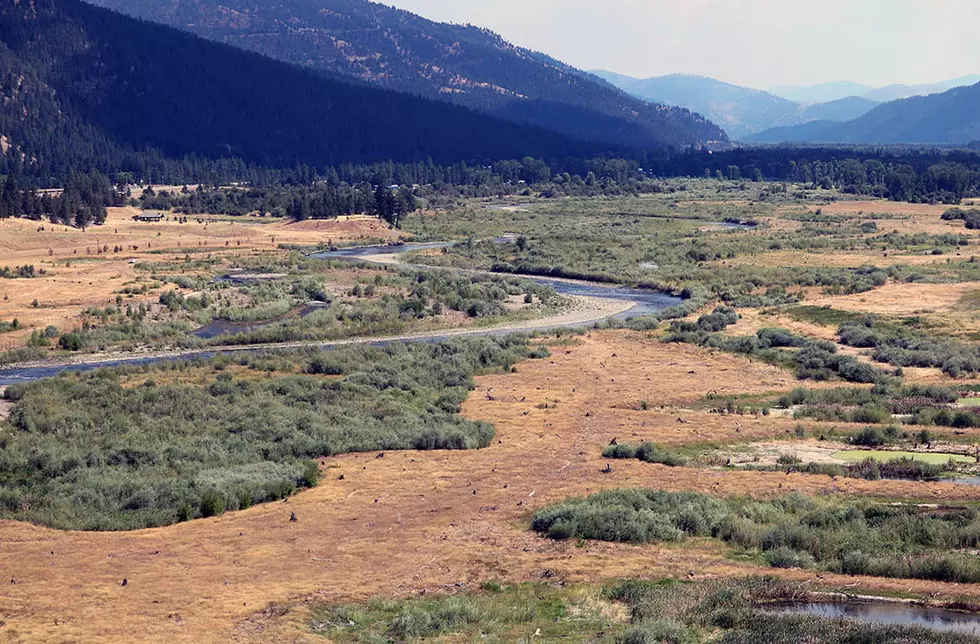
Clark Fork Coalition announces new director
Laura Lundquist
(Missoula Current) On Thursday, the Clark Fork Coalition announced that it has hired Brian Chaffin to be its next executive director starting June 3.
“We had many highly qualified candidates for this position, but Brian’s broad skills, experiences, passion, and deep knowledge of the challenges facing the Clark Fork watershed made him the natural choice,” said Daniel Kiely, CFC’s Board of Directors president, in a release.
Chaffin has spent almost a decade as a professor at the W.A. Franke College of Forestry & Conservation at the University of Montana. His teaching and research focused on water policy and governance, particularly managing water supplies in a changing climate and amid shifting social values.
Before that, Chaffin worked as a wilderness river guide, a river ranger for the U.S. Forest Service, and a research fellow at the U.S. Environmental Protection Agency. Chaffin earned a Ph.D. in geography from Oregon State University where he studied water conflict management and conducted research on the social processes that eventually led to the recent removal of major dams on the Klamath River. He earned a master’s degree in Environmental Science and a bachelor’s degree in Resource, Recreation & Tourism from the University of Idaho.
Chaffin has no immediate goals for the Clark Fork Coalition other than overseeing the many projects already underway, which “already have a lot of built-in momentum and are guided by dedicated staff that have a tremendous amount of energy and expertise. I’m very fortunate to be stepping into this position when the organization is full speed ahead on so many fronts.”
In August, Karen Knutsen announced that she would be retiring after 17 years in the role of executive director and 31 years total working for the Clark Fork Coalition.
“This was a tough decision because I am excited about the campaigns and projects currently on CFC’s plate and the opportunities for impact on the horizon. Still, I believe the timing is right for me and for the organization,” Knutsen wrote in an August release.
“As I embark on this transition, I am filled with gratitude for the opportunities that CFC gave me to do work that is meaningful, important, and based on giving back to a river that is central to everything we care about in western Montana. When I joined the team, the Clark Fork had the stigma of being a backyard dump. However, the removal of Milltown Dam, the launch of Superfund cleanups along the Upper Clark Fork, and countless CFC restoration projects and water deals have elevated the cause and delivered results that I could never have imagined possible when I hired on in 1993.”
The Clark Fork Coalition recently published a new five-year strategic plan to meet future challenges facing the watershed. The organization is continuing to monitor comprehensive Superfund cleanups in the Upper Clark Fork; working on ensuring the EPA doesn’t give short shrift to the toxic Smurfit-Stone mill site near Frenchtown; and trying to restore Grant Creek.
Knutsen was hired as director in April 2007 after working with the Coalition for 20 years in a variety of roles, including director of its River Smart Growth program, communications director, business manager, and education and outreach coordinator. In addition, she has been part of the Healthy Headwaters Working Group for Carpe Diem West, an organization that engages diverse stakeholders in developing strategies for addressing climate change impacts on water in the West.
She also serves on the board of the Watershed Restoration Coalition, a landowner-driven nonprofit working to conserve natural resources through stream restoration in the Upper Clark Fork basin.
In 1985, dozens of community members banded together to form the Clark Fork Coalition to stop the Smurfit Stone pulp and paper mill from dumping pollution into the Clark Fork River downstream of Missoula. For almost four decades, the Clark Fork Coalition has worked to restore and sustain the Clark Fork and its tributaries, using the best available science.
